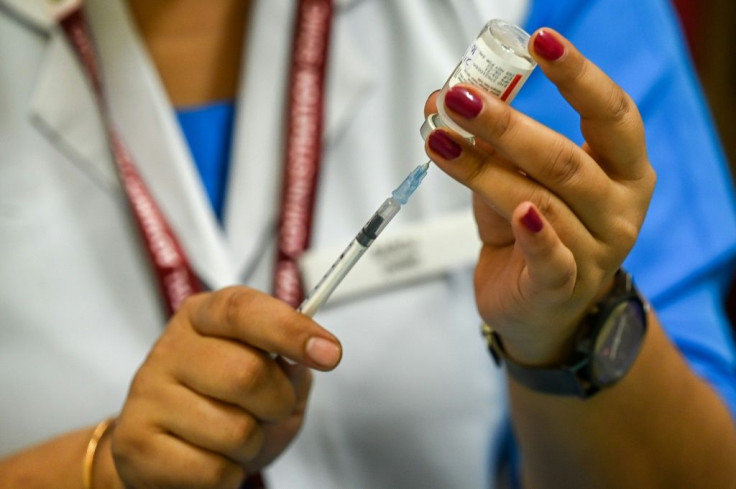Man Dies Day After Getting Second COVID-19 Vaccine Dose That's Different From First
KEY POINTS
- The 23-year-old received mix-and-match doses of AstraZeneca and Sinovac vaccines
- The man developed dark spots on his chest a day after getting his second jab
- Doctors are now performing an autopsy on his body to determine his cause of death
A 23-year-old man in Thailand has died a day after getting his second dose of COVID-19 vaccine that was a different brand from the first shot he received.
Khanti Anantasiri, an army conscript from the Tak province, died Tuesday afternoon after receiving an AstraZeneca vaccine shot on Monday. The AstraZeneca vaccine was his second dose. He initially received a first shot of the Sinovac vaccine.
Anantasiri had complained of itchiness and a fever around 10 p.m. Monday. He took medications in an attempt to counter the fever, his father Chaidet Anantasiri, 54, told The Bangkok Post.
He then took a turn for the worse around 3:45 p.m. Tuesday when his lips began turning green. Dark spots also began appearing on his chest nearly an hour later. He died shortly after.
Chaidet believes his son, who had no underlying medical conditions, died as a result of the COVID-19 vaccination. His body has been sent to Ratchaburi Hospital where experts will perform an autopsy to determine his cause of death.
In August, 20-year-old student Ketsiree Kongkaew also died days after receiving her second dose of the COVID-19 vaccine. Like Anantasiri, the 20-year-old had also received mixed doses of the Sinovac and AstraZeneca vaccines.
The Thai government first announced plans to give mixed doses of the AstraZeneca and Sinovac COVID-19 vaccine to residents in July, in a bid to increase protection. The shots would be given at least three to four weeks apart.
"This is to improve protection against the Delta variant and build a high level of immunity against the disease," Health Minister Anutin Charnvirakul said at the time, Reuters noted.
Soumya Swaminathan, chief scientist for the World Health Organization, later warned against mixing and matching COVID-19 vaccines.
“Individuals should not decide for themselves, public health agencies can, based on available data. Data from mix and match studies of different vaccines are awaited - immunogenicity and safety both need to be evaluated,” she said in a statement.
Individuals should not decide for themselves, public health agencies can, based on available data. Data from mix and match studies of different vaccines are awaited - immunogenicity and safety both need to be evaluated https://t.co/3pdYj4LUdz
— Soumya Swaminathan (@doctorsoumya) July 12, 2021
Several studies have shown that “mix and match” vaccine regimens were effective in boosting protection levels in recipients. Some studies have also shown that mixing and matching could give recipients COVID-19 protection levels that exceed that of mRNA vaccines, according to Nature.

© Copyright IBTimes 2025. All rights reserved.




















